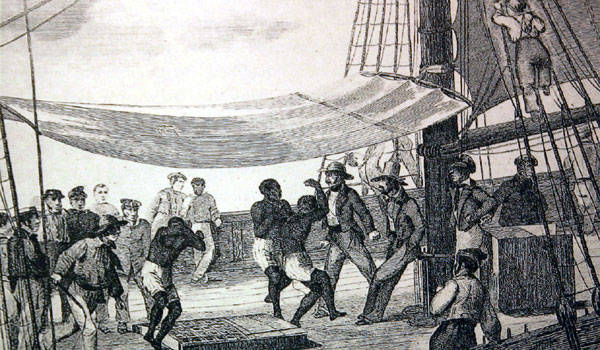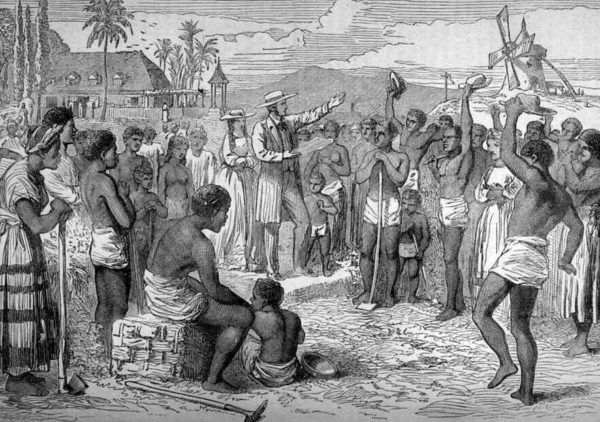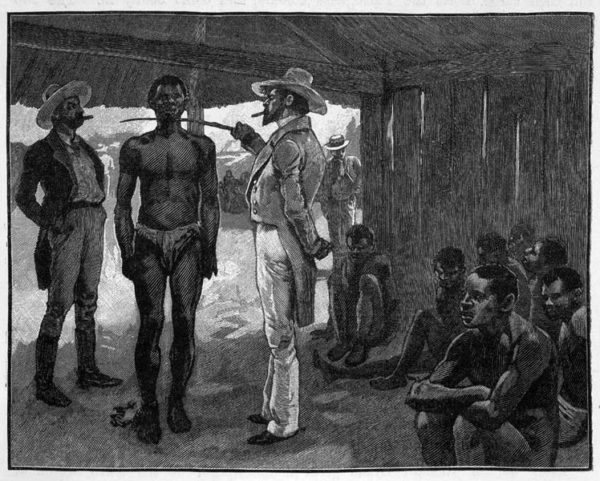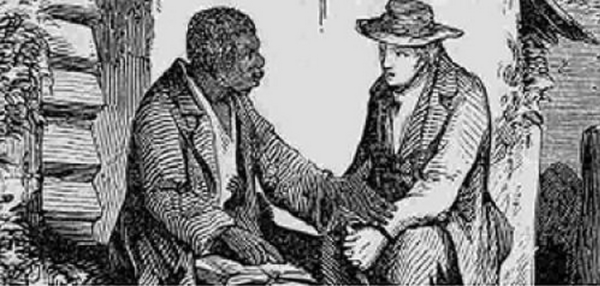Anil seh dat Africans came to Guyana back in the 1800's for betterment. ![]()
Replies sorted oldest to newest
@Mitwah posted:Anil seh dat Africans came to Guyana back in the 1800's for betterment.
How is it I can see this post when You are blocked?
Anil can say what he likes. There is no muzzle on his tongue. Some Africans choose to come in the 1800s because they didn't come here as slaves but as Indentured servants. They were paid a little less than the Indians. They were better off in British Guiana than on the African Continent. I didn't make this up.
@Mitwah posted:Anil seh dat Africans came to Guyana back in the 1800's for betterment.
True! For the betterment of the slave-owners! But 1800s? First, there was Witless Willie, now there's Anus the Ani(a)l! There's something wrong with the position of AG! Maybe they're just acting the part for their party's sake!
[[[Quote]]]
The date of the first arrival of enslaved Africans in Guyana is not known. However, it is believed the first group was brought by Dutch settlers who migrated from Tobago from as early as the mid-17th century.
[[[Unquote]]]
10 Facts About Slavery in Guyana That Shaped the Society

The date of the first arrival of enslaved Africans in Guyana is not known. However, it is believed the first group was brought by Dutch settlers who migrated from Tobago from as early as the mid-17th century. As plantations expanded on the coast of Guyana, more enslaved Africans were brought from West Africa in ships owned by the West India Company.

Upon the arrival of slave ships at different ports in Berbice, Essequibo and Demerara, auctions were held and planters came from all over to find bargains. The enslaved Africans were exposed, naked and closely inspected by prospective buyers to determine if they were healthy. They were made to jump, swing their arms and legs and were examined like farm animals.
Entire families were auctioned, but buyers showed no concern for family bonds, making purchases that separated husbands and wives and children from their parents. Friends and relatives were also separated from each other in the process.

The white plantation owners used various methods to maintain complete control over their enslaved Africans. Their principal method was “divide and rule.” Members of the same tribe were separated and sent to different plantations to prevent communication between them. The goal was to prevent them from getting together to make any plans to rebel.
This separation, however, created a problem with communication, since the plantation would have different groups of Africans speaking different languages. Therefore, the planters had to find a way to communicate to the men, women and children. Soon a new language, known as Creole-Dutch, developed, and it became a common tongue among the enslaved Africans. When the British took control of Guyana in the 19th century, English words were injected into the language, and it became the basis of the Guyanese Creole language.

Enslaved Africans were also prevented from practicing their religions. Quite a few enslaved men and women were Muslims, while many others had their own tribal beliefs. But since the European Christian planters saw non-Christians as pagans, they made sure that the enslaved men and women could not gather to worship in the way they were accustomed to when they lived in Africa.
Later, Christian missionaries were permitted on the plantations and were allowed to preach to the enslaved Africans on Sundays. In time, many of them were converted to Christianity. It was the general feeling that the converted people became docile and were not willing to support rebellion on the plantations.
Source & rest of article - https://atlantablackstar.com/2...-shaped-the-society/
Blame Paul, a Pharasaical Jew, for the 'Christianity' docility! Judaism's liaison with the alien, which Jesus called the devil, had to be protected and preserved at all costs! Jesus warned about the Pharisees (see John 8: 44)!
President Irfaan Ali has offered his “unreserved regret” to those offended by a suggestion in his Arrival Day statement that Africans were among the groups that came to Guyana seeking improvement.
In a statement issued on Thursday evening, following public criticism online, Ali acknowledged that in his message he said every group that came here did so for a better life for themselves and their descendants.
However, he added, “I was not and could not ever have been referring to our African ancestors, who did not come here of their own volition but were captured, brought to our country in chains, and brutally enslaved. Indeed, it is their sacrifice and struggle for freedom and against oppression that should inspire us to continuously secure our freedoms and democracy for a better Guyana.
“To my fellow Guyanese who felt offended by the way in which the language was structured, you have my unreserved regret and assurance that the struggles of our enslaved African ancestors would never be understated and unappreciated. They gave their lives for our freedom and as a nation, we must be forever grateful.”
